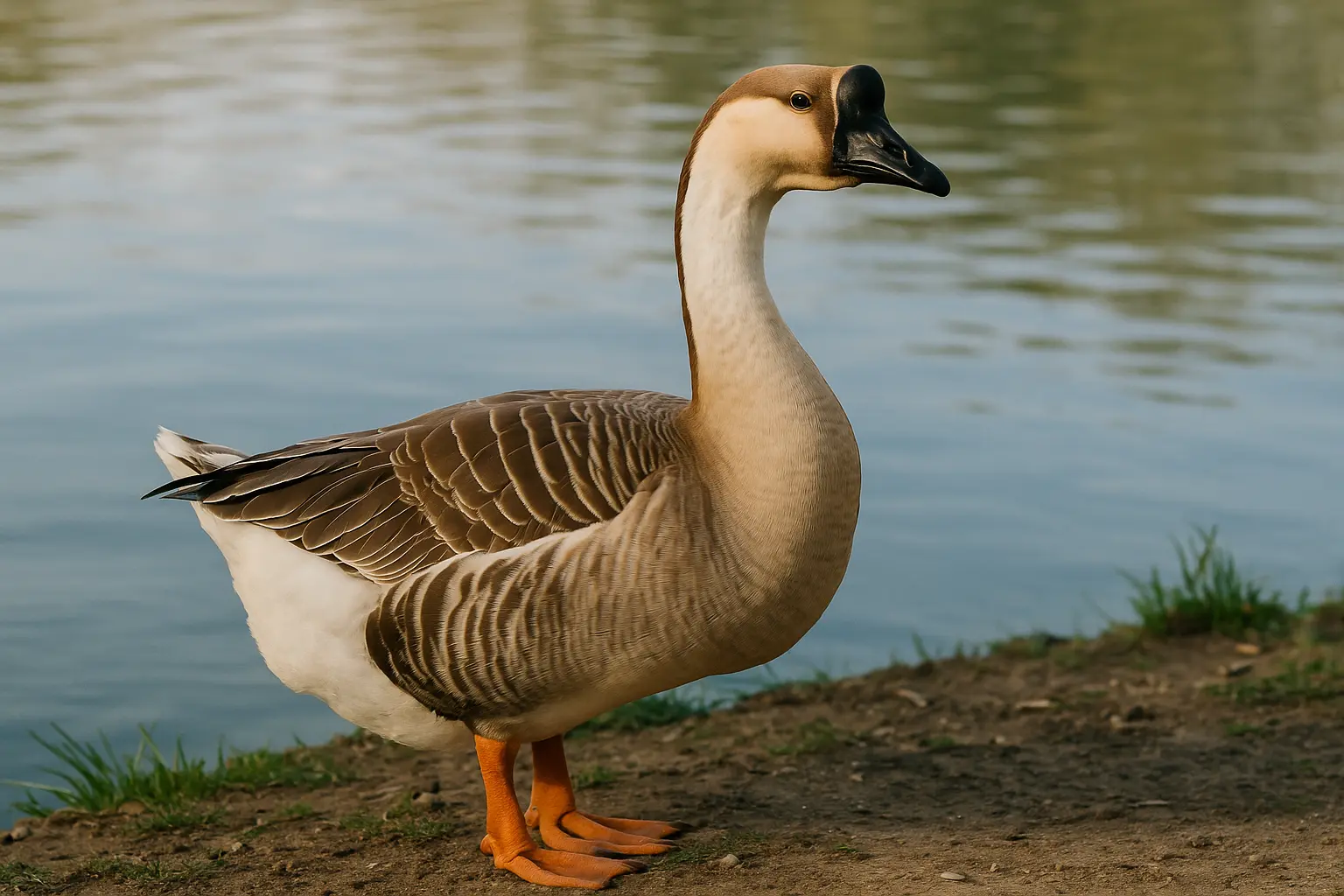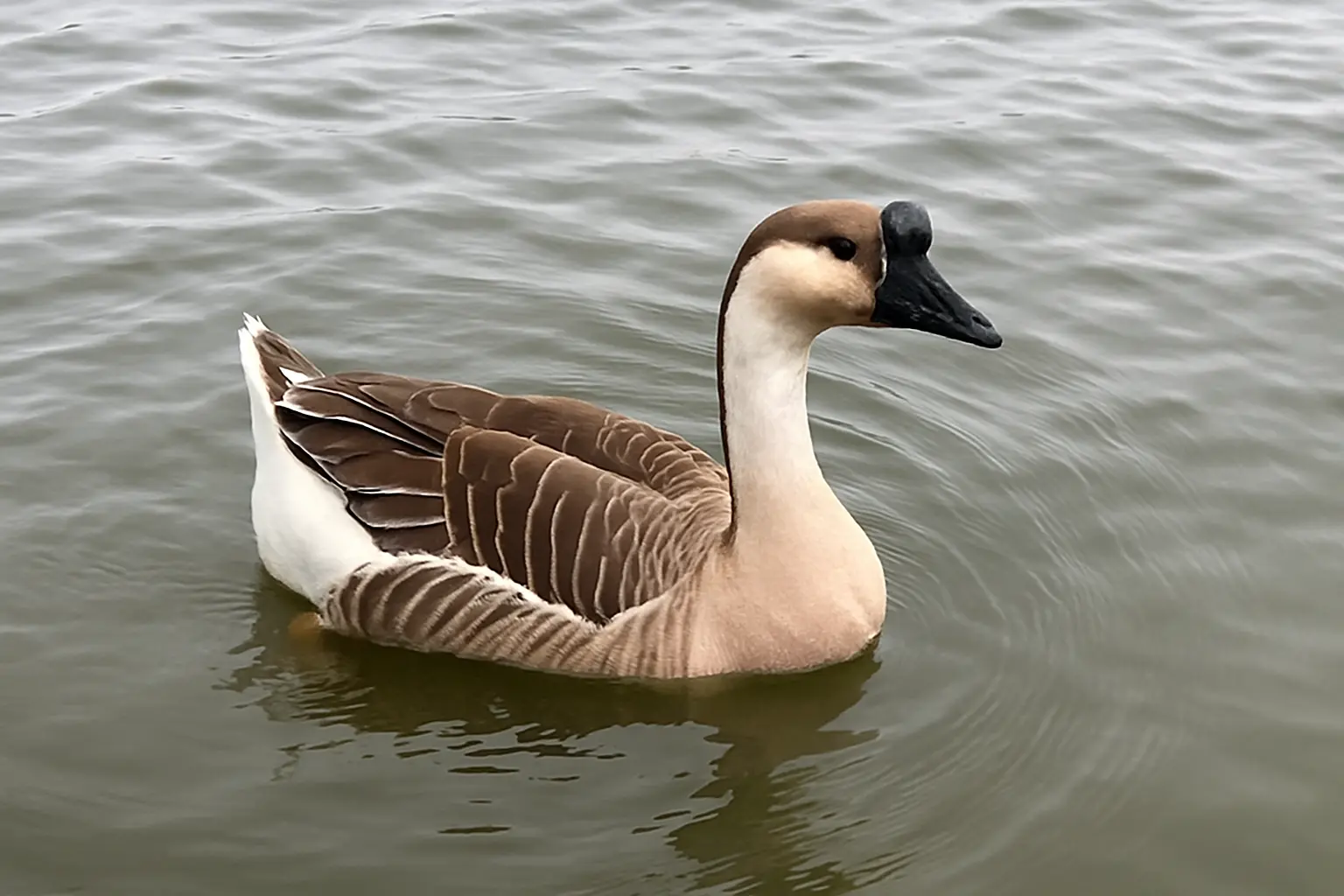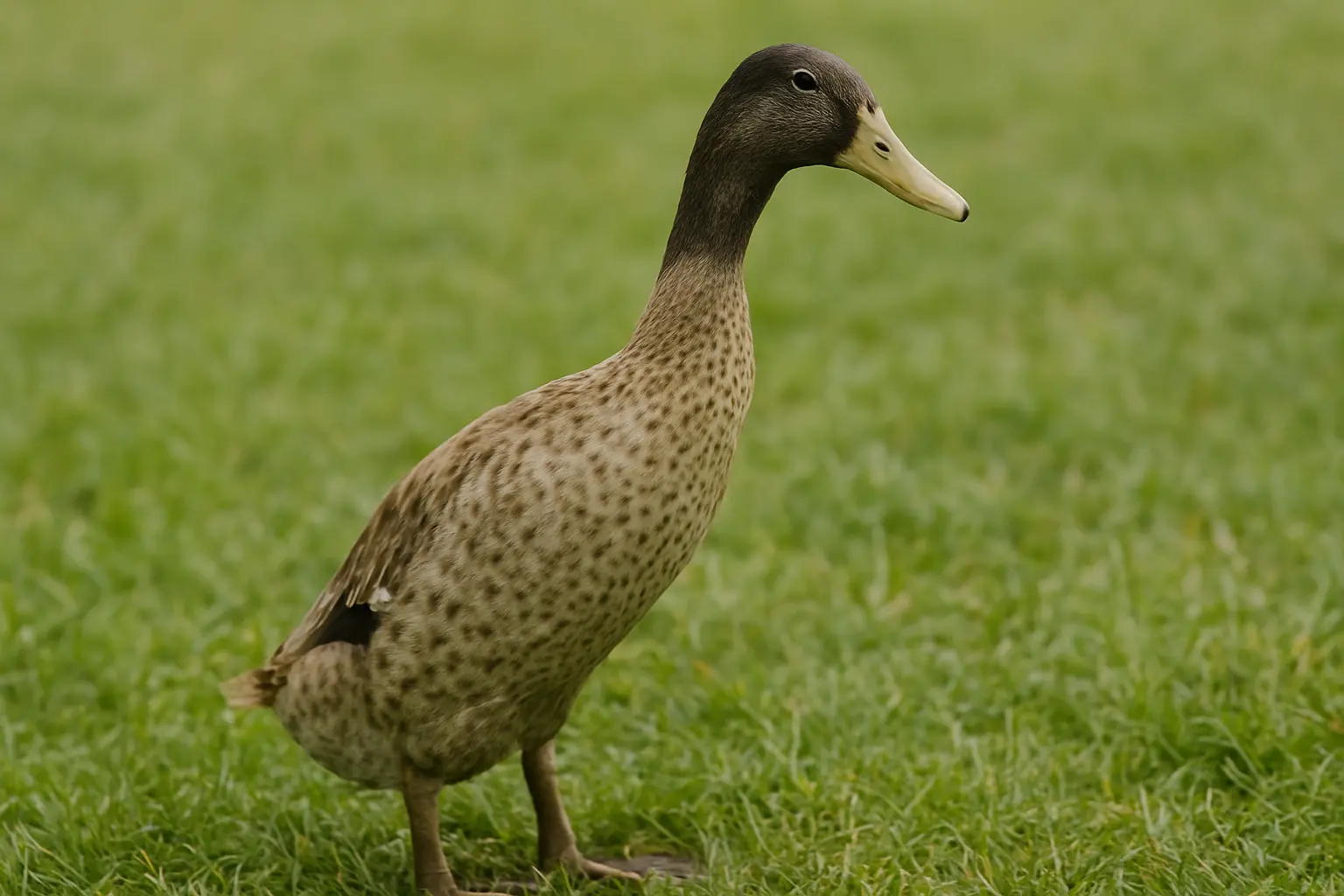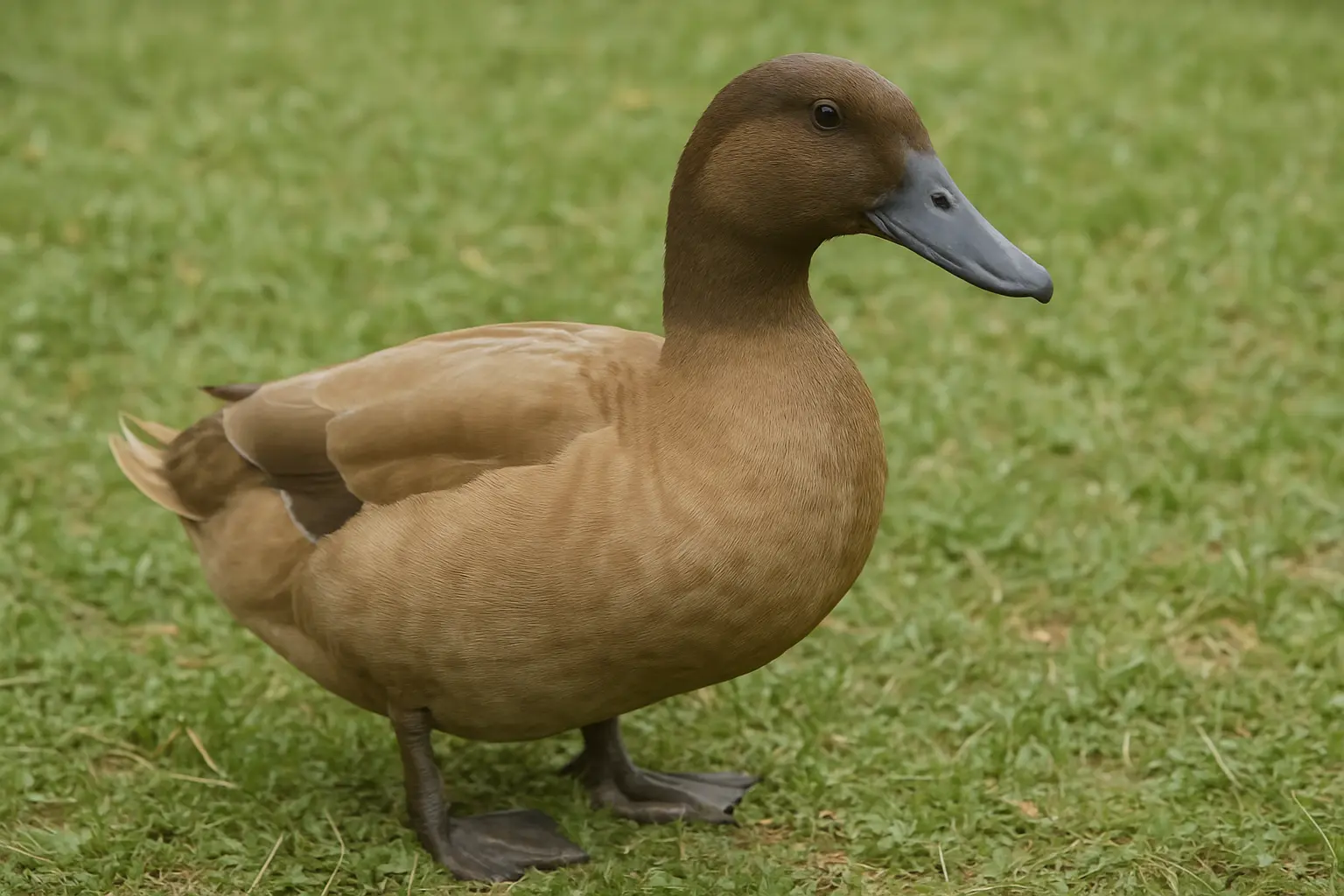
A Complete Guide to Keeping Chinese Geese
Chinese geese are a fantastic choice for poultry keepers in the UK looking for an elegant, productive, and alert breed. Known for their distinctive appearance, friendly yet vigilant nature, and excellent egg-laying abilities, Chinese geese can make a wonderful addition to smallholdings, farms, or even large gardens.
This comprehensive guide will cover everything potential owners need to know about Chinese geese, including housing, feeding, health, and general care.
Introduction to Chinese Geese
Chinese geese are a domesticated breed that originated from the wild swan goose (Anser cygnoides). They are easily recognisable due to their long, slender necks and distinctive knob at the base of their bill. Chinese geese come in two primary colours: white and brown.
Key Characteristics
- Lifespan: 10-20 years with proper care
- Size: Medium (ganders weigh 5-6 kg; geese 4-5 kg)
- Temperament: Intelligent, alert, and vocal
- Appearance: Long necks, prominent head knob, and sleek body
- Egg Production: 40-100 large white eggs per year
- Hardiness: Adaptable to the UK's climate with proper shelter
Why Choose Chinese Geese?
Chinese geese are an excellent choice for a variety of reasons:
- Excellent Egg Layers: One of the best egg-producing goose breeds, providing a steady supply of large, nutritious eggs.
- Effective Guard Animals: Their loud and alert nature makes them great at deterring intruders and predators.
- Low Maintenance Grazers: They are efficient foragers, helping to control weeds and grass.
- Elegant and Graceful: Their slender appearance and graceful movements make them a striking addition to any flock.
- Friendly and Intelligent: With proper socialisation, Chinese geese can form strong bonds with their owners.
- Adaptable: They are hardy birds that cope well with the UK's varying weather conditions.
Housing Requirements for Chinese Geese
Providing suitable housing is essential to ensure your geese stay safe, healthy, and comfortable.
Shelter Requirements
- Size: Allow at least 1 square metre per goose inside the shelter.
- Bedding: Use absorbent materials such as straw or wood shavings to keep the shelter dry.
- Ventilation: Proper airflow is crucial to prevent respiratory issues.
- Security: Ensure their shelter is predator-proof to protect against foxes and rats.
- Access: A low entrance allows easy access, as geese prefer walking rather than climbing.
Outdoor Space
Chinese geese are active birds and require ample space to roam and graze.
- Minimum Space: Provide at least 20 square metres per goose, with more space being preferable.
- Fencing: Use sturdy fencing of at least 90 cm in height to keep them contained and safe.
- Water Access: A pond, large trough, or children’s pool is essential for swimming and preening.
Tip: Regularly clean their water sources to maintain hygiene and prevent disease.
Feeding Your Chinese Geese
A well-balanced diet is crucial to their health and productivity.
Essential Nutrition
- Grazing: Chinese geese thrive on grass and should have access to fresh pasture.
- Pelleted Feed: Provide waterfowl pellets containing essential nutrients, especially during winter.
- Grains: Offer wheat, oats, and barley as a supplementary feed.
- Fresh Vegetables: Leafy greens such as lettuce, cabbage, and kale are excellent treats.
- Grit: Helps them digest their food properly.
- Fresh Water: Ensure they have constant access to clean water for drinking and washing their food.
Feeding Tip: Avoid feeding them processed human food, which can be harmful to their digestive system.
Health and Common Concerns
Chinese geese are generally hardy, but like all poultry, they require regular health checks and preventative care.
Common Health Issues
- Wet Feather: Can occur if their feathers lose waterproofing due to dirty water or poor diet.
- Bumblefoot: A bacterial infection caused by walking on rough or dirty surfaces; keep their environment clean.
- Worms and Parasites: Conduct regular worming and check for external parasites such as lice.
- Respiratory Infections: Ensure the shelter remains dry and draught-free to prevent infections.
Preventative Care
- Provide clean living conditions.
- Offer a balanced diet with appropriate supplementation.
- Regularly observe your geese for any signs of illness, such as lethargy or changes in behaviour.
Chinese Goose Behaviour and Handling
Chinese geese are intelligent and social birds with a strong sense of awareness.
- They are naturally inquisitive and can form close bonds with their keepers.
- They are excellent watchdogs and will alert you to any unusual activity with their loud calls.
- While they are friendly when raised from a young age, they can become territorial during the breeding season.
- Chinese geese enjoy exploring their environment and benefit from having a variety of spaces to forage.
Handling Tip: To build trust, spend time near them regularly and offer treats to encourage positive interactions.
Egg Production and Collection
Chinese geese are among the most prolific egg layers within the goose breeds.
Egg-Laying Habits
- They typically start laying eggs at around 9-12 months of age.
- Expect 40-100 eggs per year, depending on diet and environment.
- They may become broody and sit on their eggs if provided with a quiet nesting area.
- Eggs are large and can be used in baking or cooking like chicken eggs.
Egg Collection Tip: Collect eggs daily to ensure freshness and prevent breakage.
Winter Care for Chinese Geese
Although Chinese geese are hardy, they require additional care during the colder months.
- Shelter Insulation: Provide thick bedding such as straw to retain warmth.
- Preventing Frozen Water: Use heated water dispensers or regularly check and replace frozen water.
- Increased Feeding: Provide additional grains and high-energy feed to help them maintain body heat.
- Foot Care: Ensure they have access to dry ground to prevent foot problems.
Winter Tip: Ensure their water source does not freeze over, as geese rely on water for digestion and preening.
Breeding and Raising Goslings
If you plan to breed Chinese geese, providing the right conditions is essential for successful hatching.
Breeding Tips
- The breeding season typically begins in early spring.
- Provide comfortable nesting areas with plenty of bedding.
- Chinese geese are good mothers and will often sit on their eggs until they hatch.
- The incubation period lasts around 28-30 days.
- Goslings require warmth, a starter waterfowl feed, and access to shallow water under supervision.
Growth Rate: Goslings grow rapidly and will start feathering within a few weeks.
Legal Considerations in the UK
Before keeping Chinese geese, it's important to be aware of legal requirements and responsibilities.
- DEFRA Regulations: Ensure compliance with biosecurity measures to prevent the spread of avian diseases such as bird flu.
- Local Council Regulations: Check if your council has any restrictions on keeping geese in residential areas.
- Neighbour Considerations: Inform neighbours, as Chinese geese can be quite vocal.
Conclusion
Chinese geese are a fantastic addition to any flock, offering beauty, productivity, and a touch of personality. Whether you’re looking for excellent egg layers, natural lawn mowers, or alert guardians for your property, Chinese geese can fit the bill perfectly.
With proper housing, a nutritious diet, and regular care, your Chinese geese will thrive and provide years of companionship and utility.
Contents
- Introduction to Chinese Geese
- Why Choose Chinese Geese?
- Housing Requirements for Chinese Geese
- Feeding Your Chinese Geese
- Health and Common Concerns
- Chinese Goose Behaviour and Handling
- Egg Production and Collection
- Winter Care for Chinese Geese
- Breeding and Raising Goslings
- Legal Considerations in the UK
- Conclusion
Tags
Vets near you
Speciality vets
- Aquatics vet specialists
- Birds vet specialists
- Camelids vet specialists
- Cats vet specialists
- Cattle vet specialists
- Deer vet specialists
- Dogs vet specialists
- Equines vet specialists
- Exotic vet specialists
- Goats vet specialists
- Pigs vet specialists
- Poultry vet specialists
- Sheep vet specialists
- Small Mammals vet specialists
- Wild vet specialists
Vet facilities
- Accessible by public transport
- Blood testing
- Car park nearby
- Client car park
- Dentistry
- Diagnostic imaging
- Disabled public access
- Flea and worm treatments
- Microchipping
- Mobile services
- Neutering
- Open at weekends
- Out-of-hours service
- Referral interests
- Referrals only
- Street parking outside
- Toilets available
- Vaccinations



